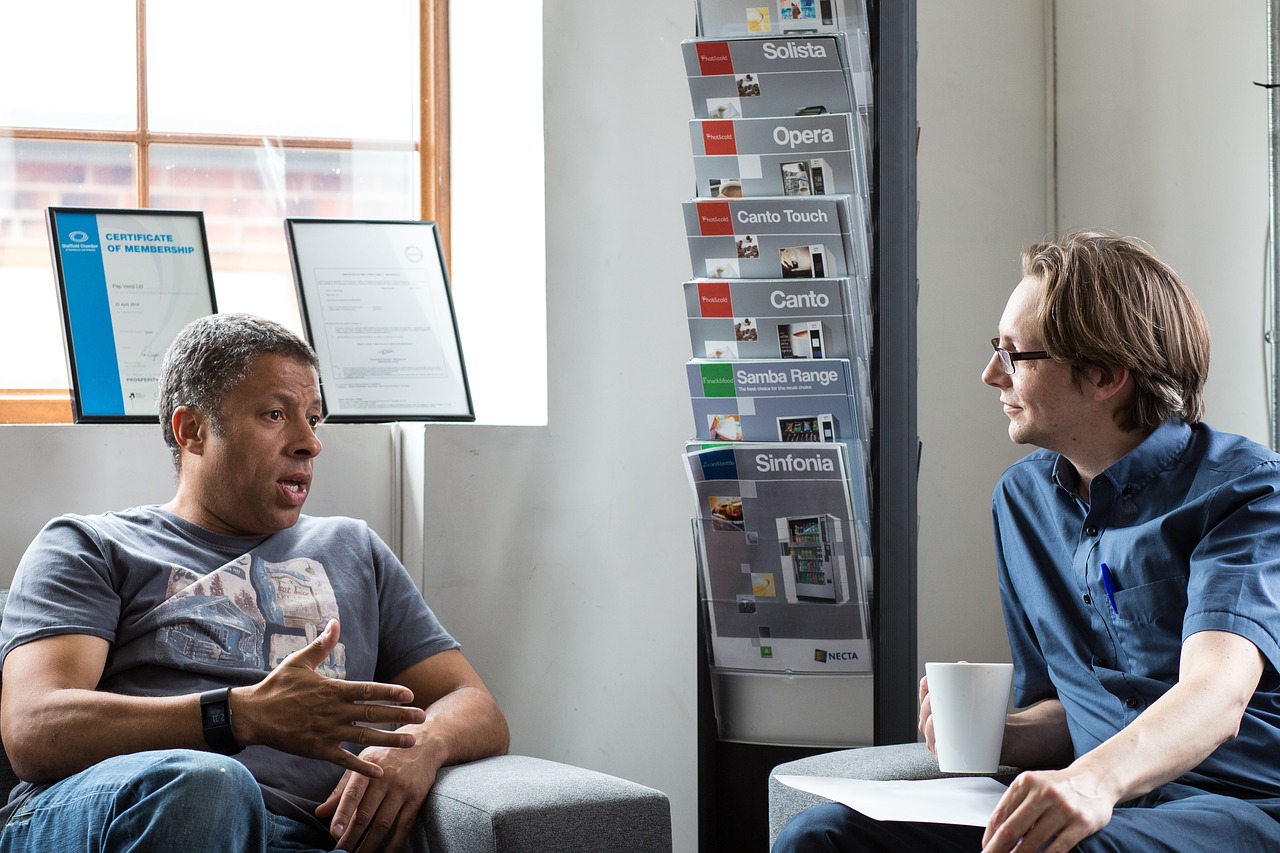The Art of Being a Good Listener at Work and at Home
I’ve been told on many occasions that I am a good listener (I think it was my dad who told me that I was given two ears and one mouth because I’m supposed to listen at least twice as much as I talk). But whether that is true or not, I also know that I want to get better.
Even if you’re like me and don’t have issues interrupting people, our ability to demonstrate active listening can always be improved.
I know that I’ll never stop looking for ideas and suggestions from others on ways I can improve my communication skills.
A wake up call to listen
And I can tell that my workshop participants feel the same. At various times throughout each session, I ask participants to share any ‘aha’ moments they’ve experienced thus far in the session with myself and their co-workers.
At a recent Workplace Violence Prevention workshop, the idea of not interrupting another person was mentioned several times as one of these take-away lessons for a good listener.
Yes, we discussed conflict resolution strategies and de-escalation techniques, but this idea of being a good listener came near the top every time as the most memorable tool.
Not only is this ability helpful in diffusing an upset or frustrated person, but it also enhances relationships in general – which has a multitude of positive applications.
The power of listening
In fact, the Harvard Business Review published an incredibly interesting article in 2018 about the power of listening. It included descriptions of three separate studies that exposed different groups of students to both focused and distracted listeners.
The authors, Guy Itzchakov and Avraham N. Kluger, found that speakers paired with focused listeners felt less anxious, more self-aware, and reported higher clarity about their attitudes on the topics that they were speaking about.
In a practical sense, active listening contributes to a positive workplace culture.
In her recent book, The Fearless Organization, Amy Edmondson shares stories and research about how organizations and teams can create cultures where knowledge and innovation flourish because people feel safe to contribute their ideas. There is significant emphasis placed on the ability to be heard because others are actually listening to each other.
In our Bullying and Harassment training workshops, where we focus on positive workplace behaviors as being the antidote to incivility and disrespect, listening to each other in the workplace continually comes out on top as being a builder of trust and respect within organizations.
How do you feel your listening skills stack up?
Well, here are some considerations to help you gauge your listening skills and to help you become a good listener:
- You think about 4 times faster than a person usually talks. Do you use this excess time to think about other things while you’re keeping track of the conversation?
- Do you listen primarily for facts, rather than ideas, when someone is speaking?
- Do you avoid listening to things that you feel will be too difficult to understand?
- Can you tell from a person’s appearance and the way that they talk whether they will have anything worthwhile to say?
- When somebody is talking to you, do you try to make him/her think that you are paying attention when you’re not?
- Do certain words or phrases prejudice you so that you don’t listen objectively?
- Do you turn your thoughts to other subjects when you believe a person will have nothing particularly useful to say?
- When you are listening to someone, do other sights and sounds easily distract you? (Squirrel!)
- When you are puzzled or annoyed by what someone says, do you try to get the question straightened out immediately, either in your own mind or by interrupting the speaker?
- In a conversation, do you catch yourself concentrating more on what you are going to say when it’s your turn to speak, rather than on what the speaker is saying?
Hopefully, you read to the end and didn’t get distracted or were interrupted by someone asking you a question.
We can (and should) all become better listeners.
So, the next time someone is talking to you, demonstrate that you really care about what they have to say and listen. Really listen. I think you’ll find your relationships will improve dramatically. Be and become a good listener.
Oh yes, and don’t interrupt.
Good listener story from a recent workshop
In a recent Violence Prevention workshop, I had such an opportunity to gain insight into my clientele.
To glean basic information, I like to ask each participant how long they have been with their organization and what their role is. I also ask whether there has been a time at work when they thought that their safety was in jeopardy due to the behavior of someone else, and what they did about it.
One of the benefits that comes from this conversation is that I receive information about how safe they feel their workplace is, as well hearing how each participant deals with personal safety concerns.
I am constantly impressed that the majority of people understand that listening is one of the most important tools in their safety toolbox.
In this one particular session delivered to a municipal client, several participants mentioned that being able to demonstrate that they were paying attention and sincerely wanting to help an upset, frustrated, and ticked off person had been highly effective in de-escalating the situation.
One person added that because of an incident at work, he had learned never to interrupt someone who is sharing information with him. He learned this the hard way when an incredibly upset member of the public wrote an eloquent, but specific letter to the employee’s supervisor, stating that this employee kept interrupting him, causing immense frustration.
This participant shared that, although he was initially upset that he had received a letter of complaint, he decided to practice not interrupting people. He immediately found that people appreciated having the opportunity to complete sentences rather than being constantly talked over.
It even had a remarkably powerful effect on his relationships outside of work.
After all, isn’t this a pivotal way to show respect to the person with whom we are interacting?






